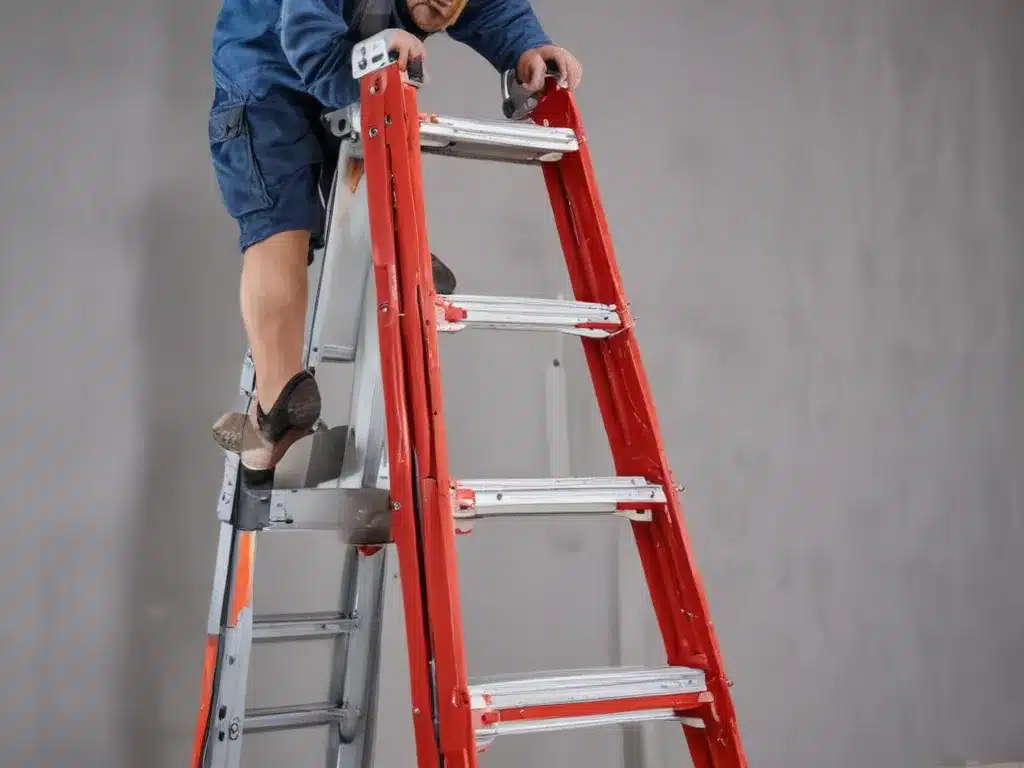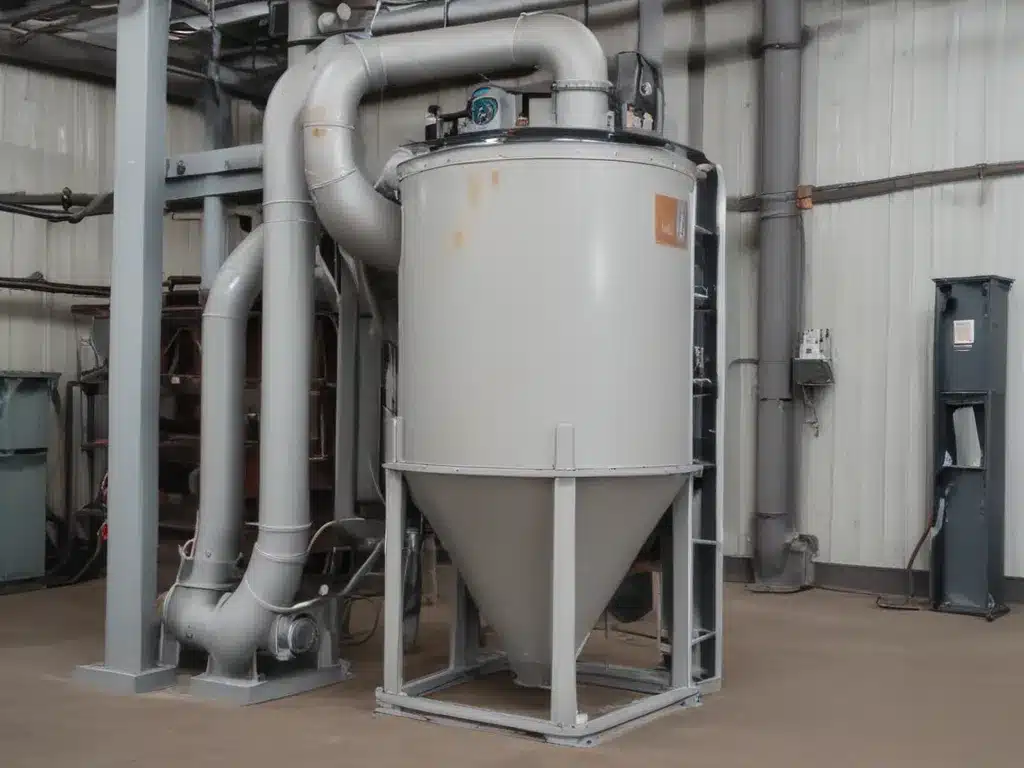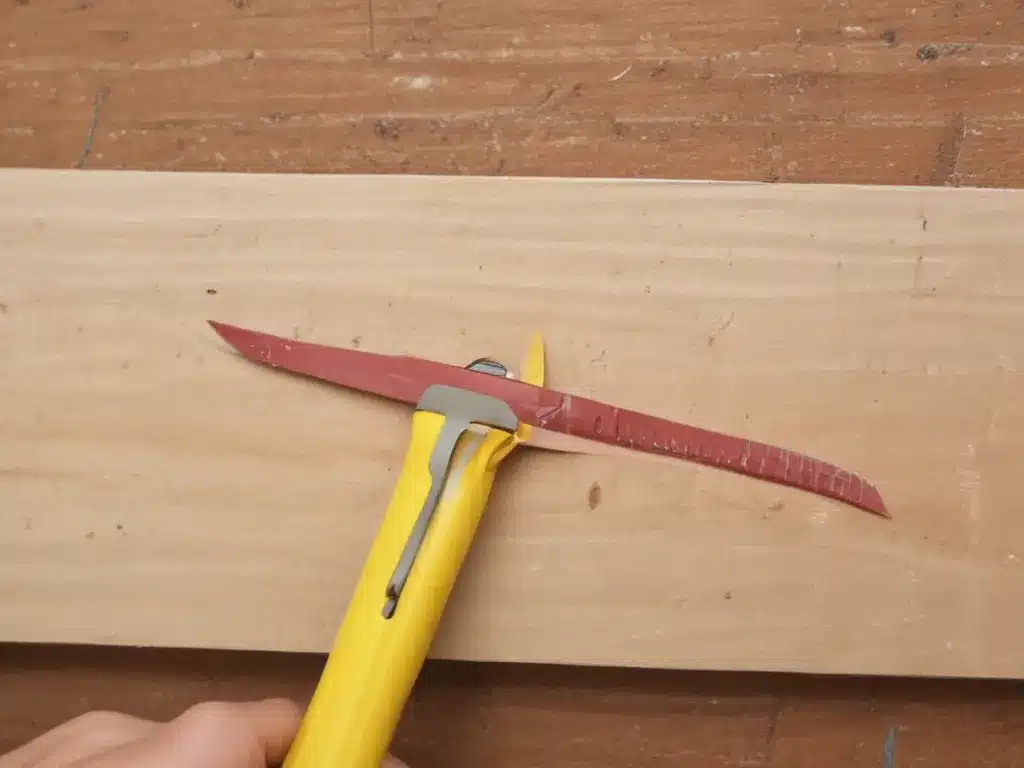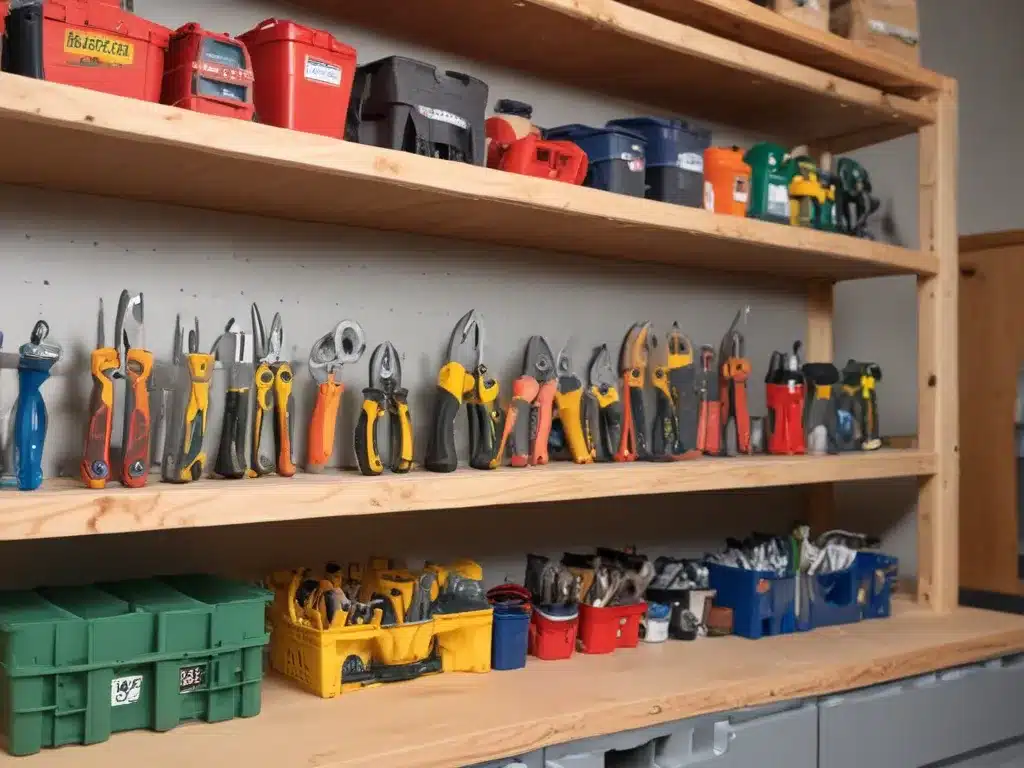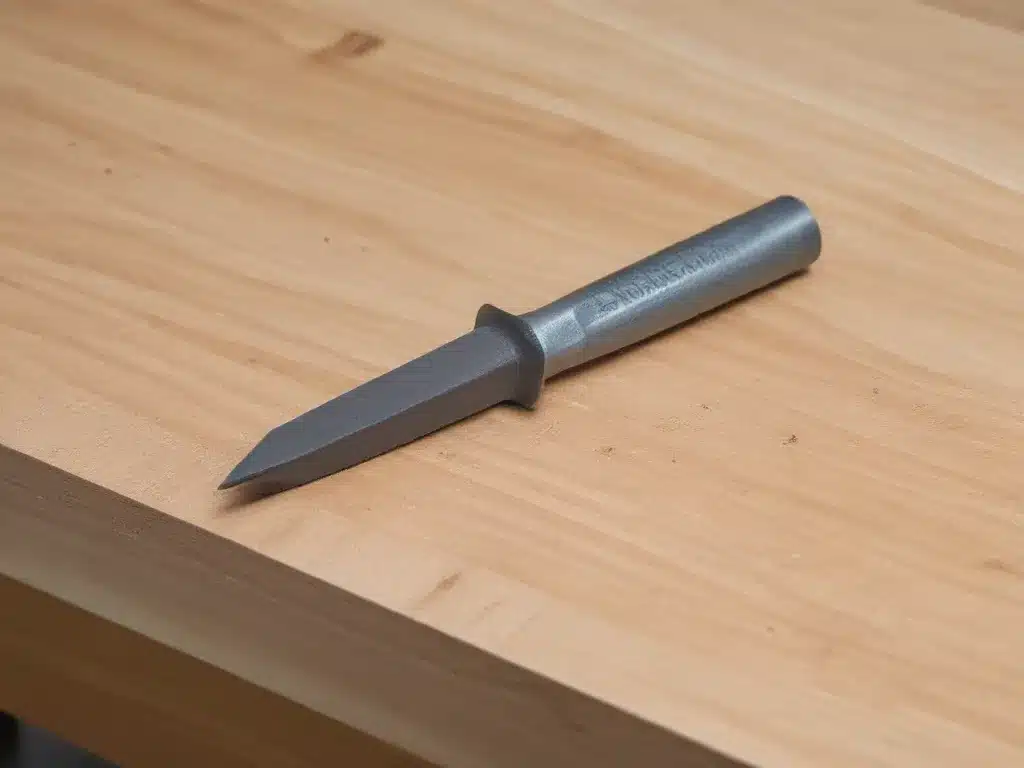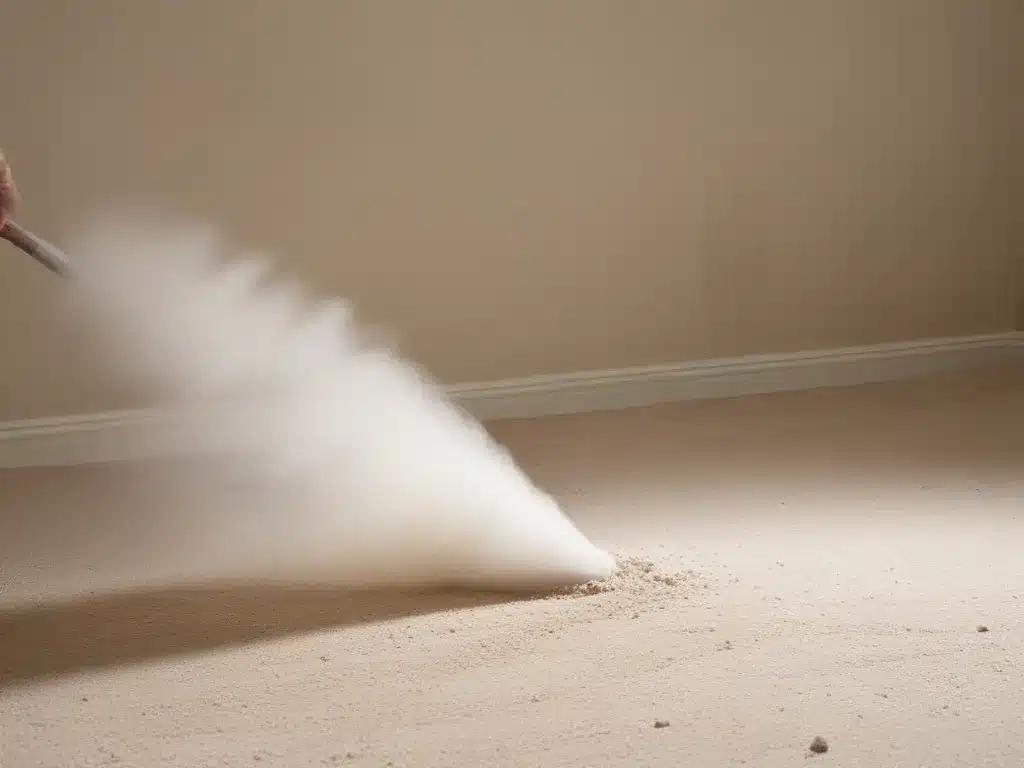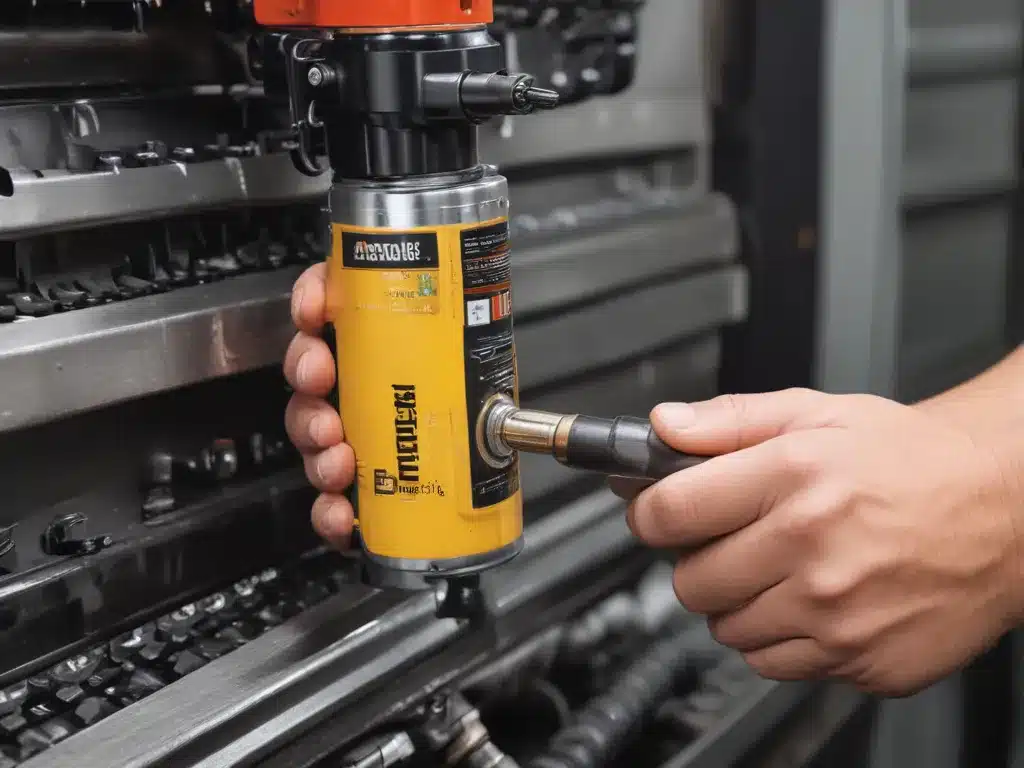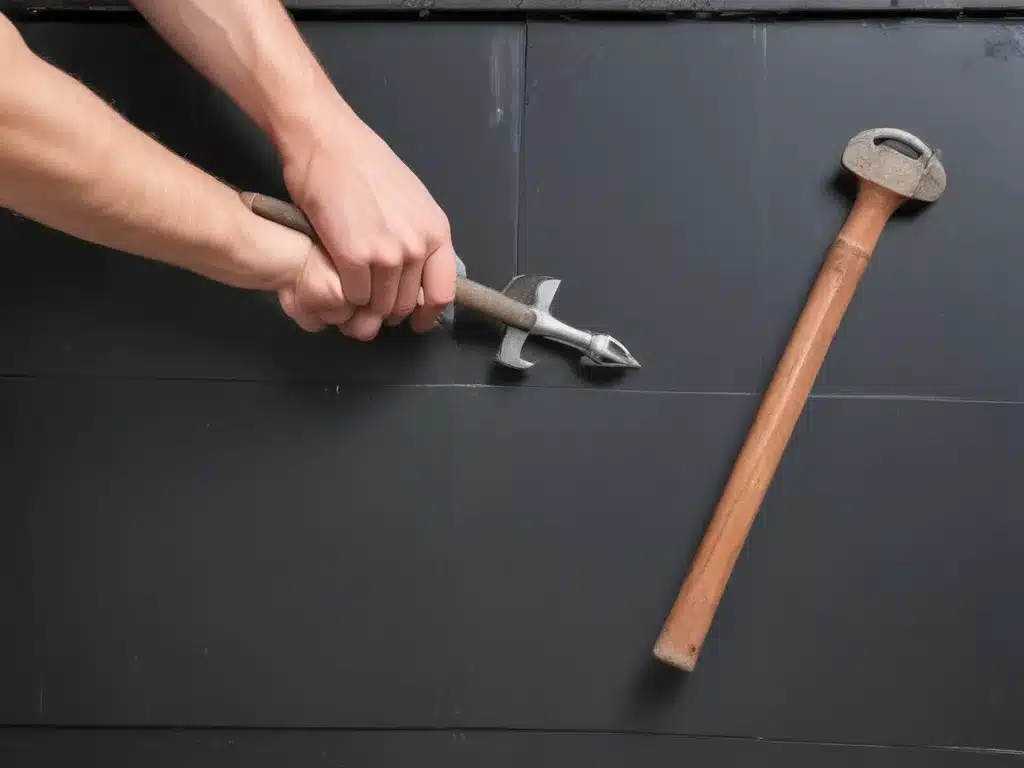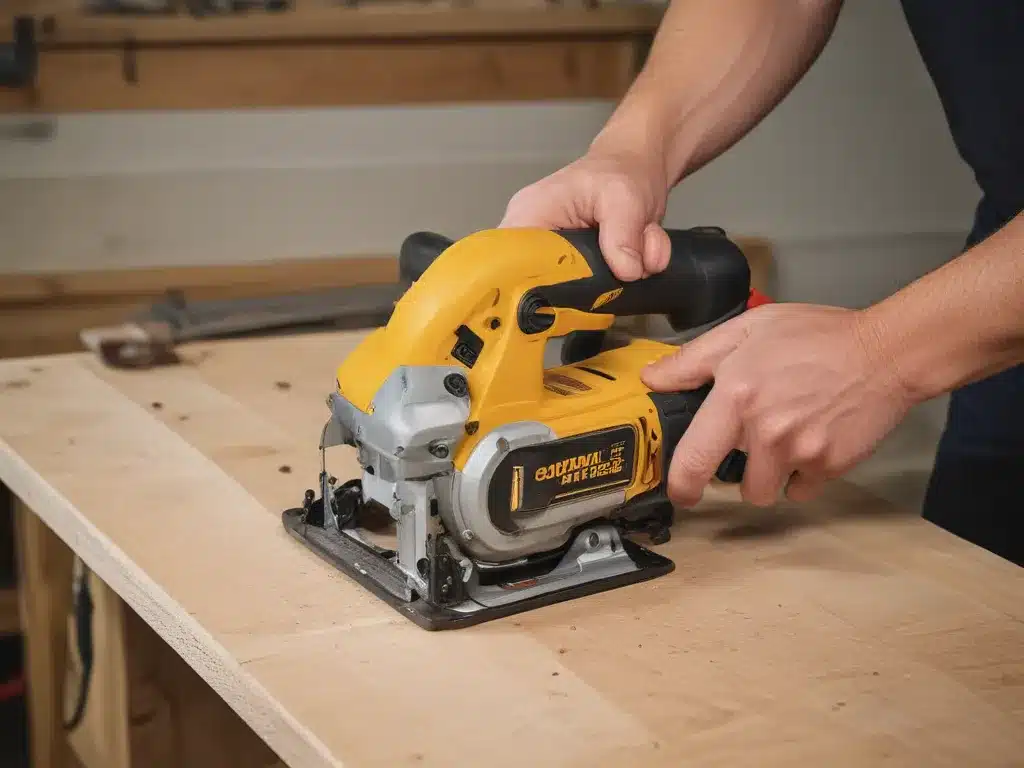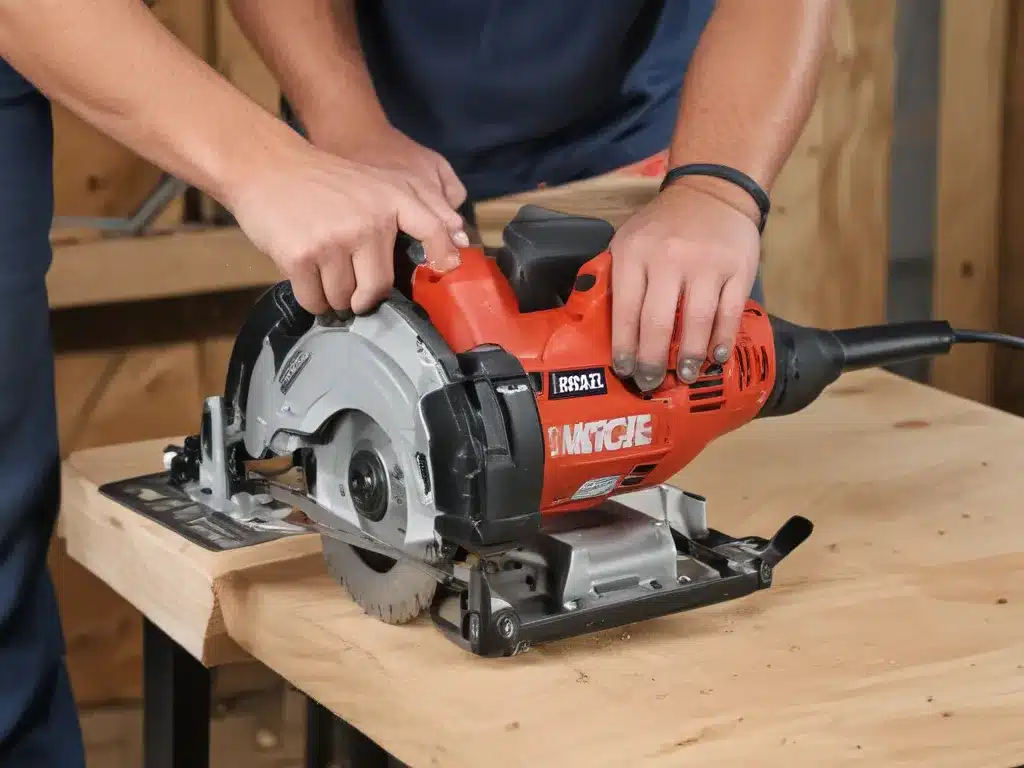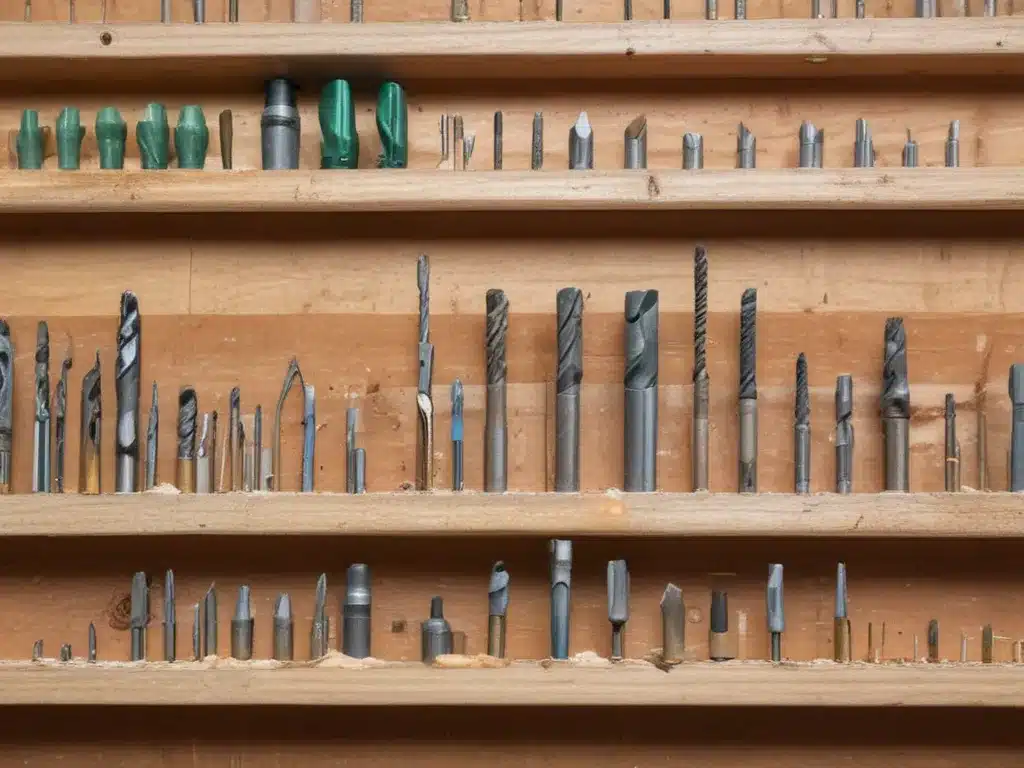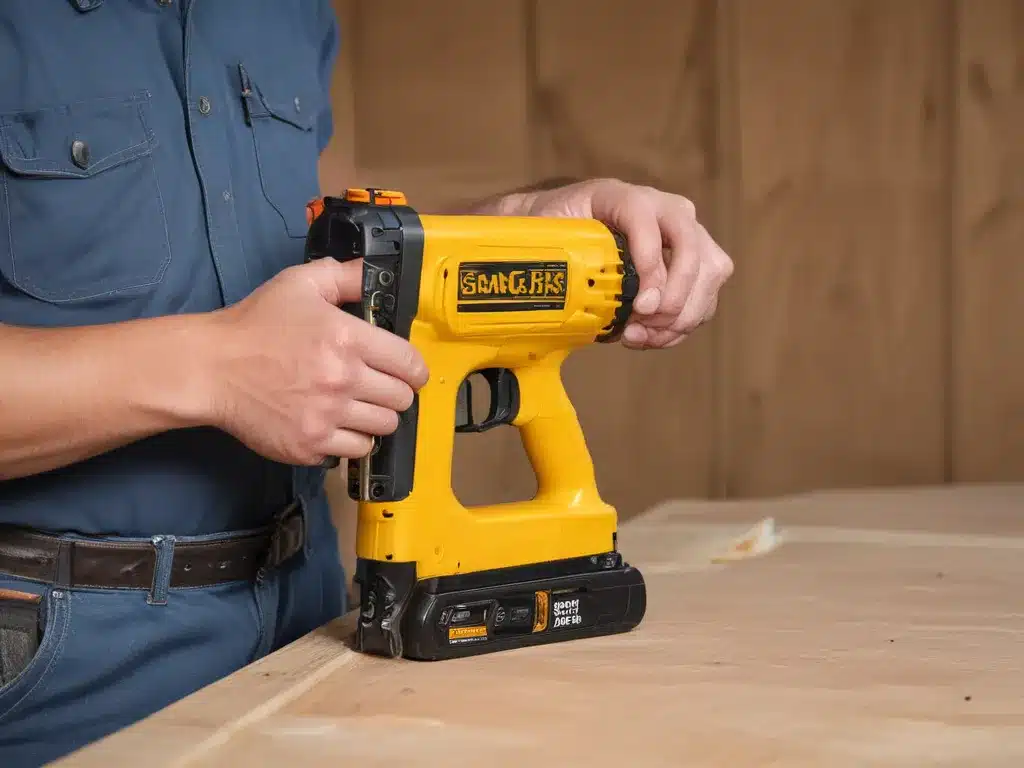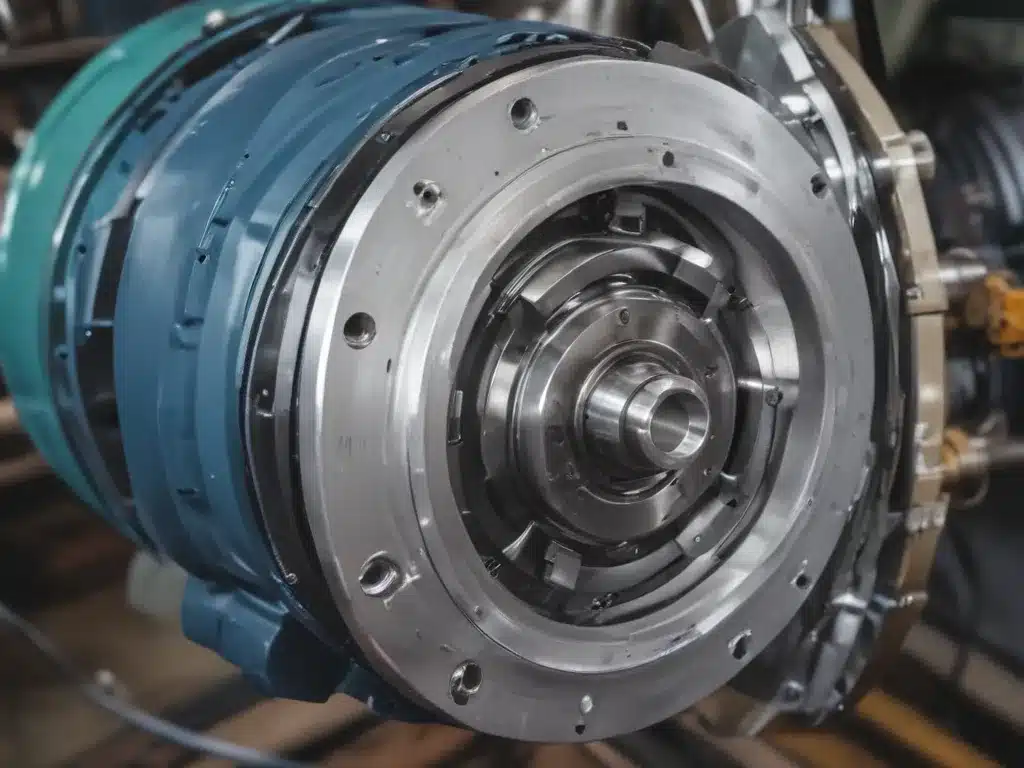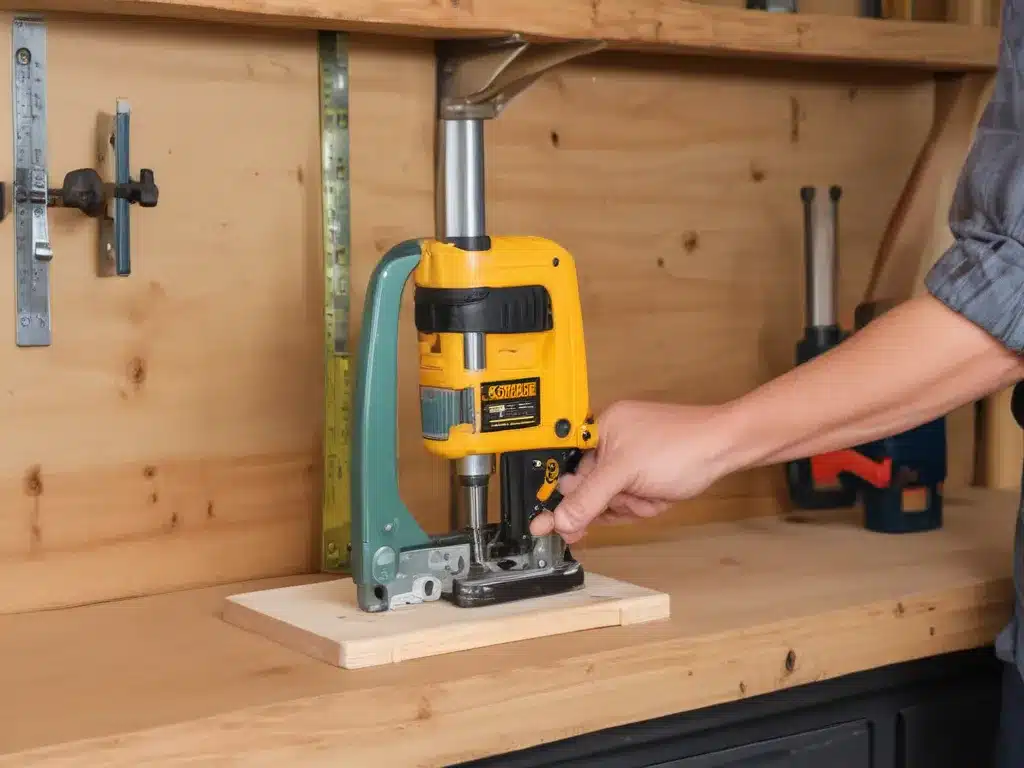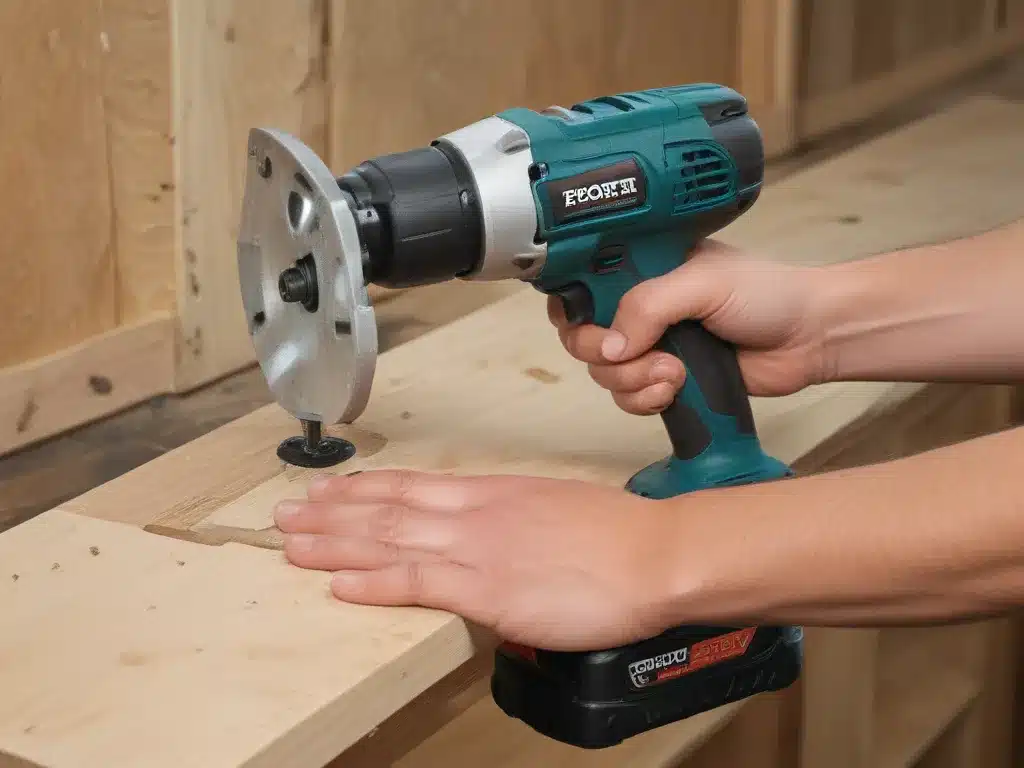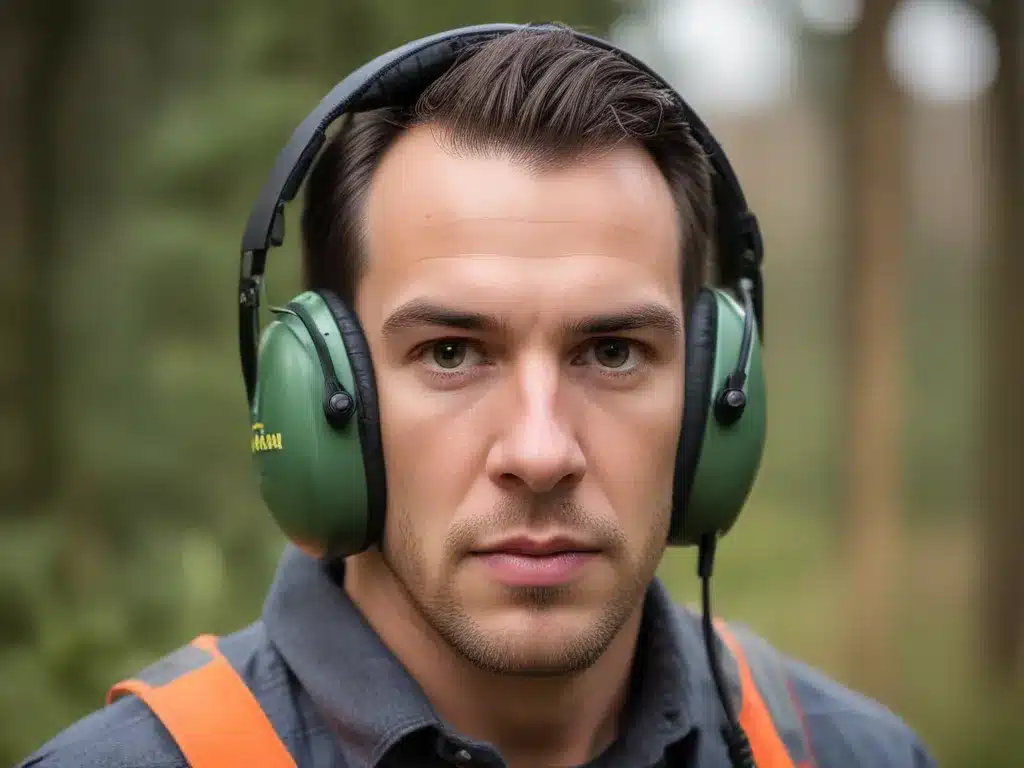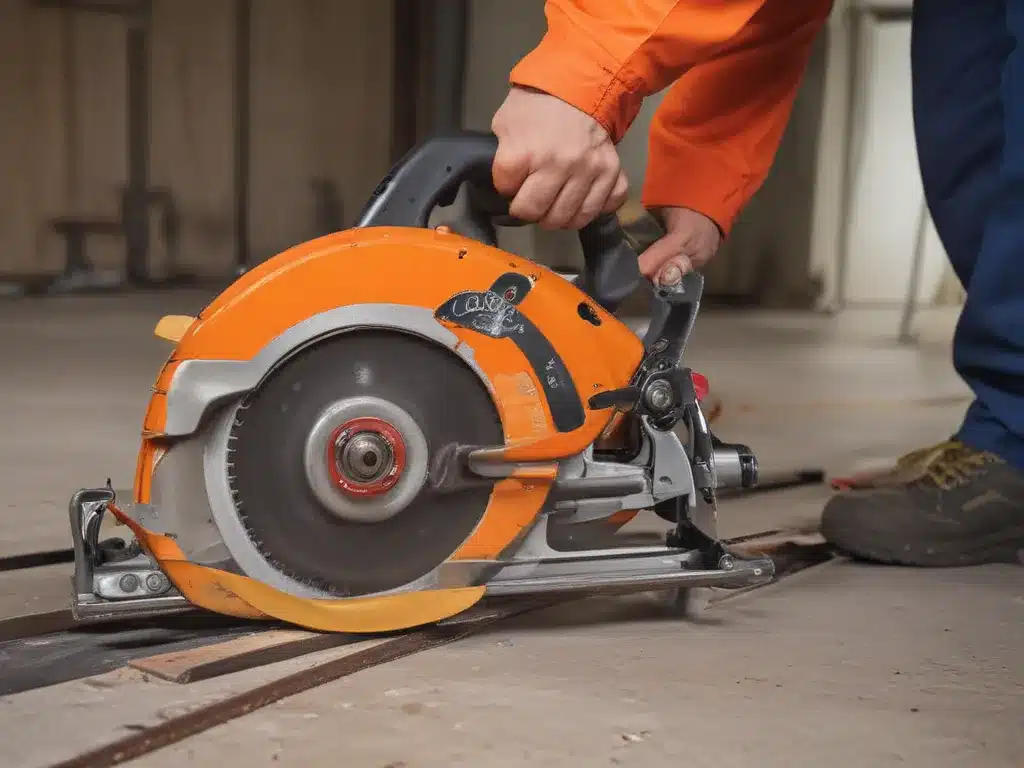Ahh, the age-old dilemma of the power tool enthusiast – how to wrangle all that pesky dust and debris without sacrificing your workshop’s feng shui (or your lungs)? Well, my friends, I’m here to let you in on the secrets of finding the perfect dust collector system for your needs. So, grab your safety goggles and let’s dive in!
Understanding the Basics of Dust Collectors
Before we get into the nitty-gritty of selecting the ideal dust collector, let’s take a moment to appreciate the humble yet mighty dust collector. This unsung hero of the workshop is responsible for capturing all the wood shavings, metal filings, and other airborne particles that would otherwise turn your carefully curated space into a scene straight out of a post-apocalyptic movie.
The fundamental premise behind a dust collector is simple – it uses a powerful motor to draw in the dusty air, trapping the particles in a filter before expelling the clean air back into the room. But, as with most things in life, the devil is in the details. The size of the motor, the type of filter, and the overall design of the system can all have a significant impact on its performance and efficiency.
Factors to Consider When Choosing a Dust Collector
Now, let’s dive into the nitty-gritty of selecting the best dust collector for your needs. There are several key factors to consider, and trust me, I’ve done the research so you don’t have to.
Airflow and Suction Power
The first and arguably most important factor to consider is the airflow and suction power of the dust collector. This determines how effectively it can capture and contain the dust and debris generated by your power tools. As a general rule, you’ll want a system that can provide at least 500 CFM (cubic feet per minute) of airflow, but the exact requirement will depend on the size and number of tools you’ll be using.
A good way to visualize this is to imagine trying to suck up a pile of feathers with a weak vacuum cleaner – it just ain’t gonna happen. The same principle applies to your dust collector. If it doesn’t have enough oomph, you’ll be left with a workshop that looks like a tornado just blew through.
Filter Efficiency
Another crucial factor to consider is the filter efficiency of the dust collector. This determines how well it can capture the fine particulate matter that can be harmful to your health if inhaled. Look for a system with a high-efficiency particulate air (HEPA) filter, which can capture up to 99.97% of airborne particles as small as 0.3 microns.
Now, I know what you’re thinking – “But Michelangelo, won’t a HEPA filter clog up faster and reduce airflow?” Well, my friends, that’s where the design of the dust collector comes into play. The best systems use a two-stage filtration process, with a pre-filter to capture the larger particles and a HEPA filter to handle the fine stuff. This helps to maintain high airflow while still providing excellent dust containment.
Noise Level
Let’s be honest, no one wants to feel like they’re standing next to a jet engine while trying to work on their latest project. That’s why the noise level of the dust collector is an important consideration. Look for systems that advertise low decibel ratings, typically in the 60-80 dB range. This will allow you to work in peace without feeling like you need to invest in a pair of industrial-strength earmuffs.
Portability and Footprint
Depending on the layout of your workshop and the type of projects you tackle, the portability and footprint of the dust collector may also be a factor to consider. If you need to move the system around frequently or have limited floor space, a compact, wheeled unit may be the way to go. On the other hand, if you have a dedicated workshop space and don’t mind a larger footprint, a more powerful, stationary unit might be the better choice.
Cost and Maintenance
Last but not least, let’s talk about the all-important factors of cost and maintenance. Dust collectors can range widely in price, from a few hundred dollars for a basic model to several thousand for a high-end, industrial-grade system. Consider your budget and weigh the long-term cost of ownership, including replacement filters and other maintenance expenses.
Speaking of maintenance, it’s important to choose a dust collector that is easy to clean and maintain. Look for systems with accessible filters, easy-to-empty collection bags, and clear instructions on how to perform routine maintenance. Trust me, you don’t want to be wrestling with a finicky dust collector when you could be working on your latest masterpiece.
Real-World Examples and Recommendations
Alright, now that we’ve covered the key factors to consider, let’s take a look at some real-world examples and recommendations to help you find the perfect dust collector for your workshop.
Case Study: The Workshop Warrior
Meet Tony, a seasoned woodworker with a passion for creating custom furniture and intricate woodcarvings. Tony’s workshop is a bustling hive of activity, with a variety of power tools – from table saws and band saws to routers and sanders – generating a constant stream of dust and debris.
Knowing the importance of maintaining a clean and healthy work environment, Tony decided to upgrade his aging dust collection system. After careful research and consideration, he settled on a high-performance, two-stage dust collector with a HEPA filter and a powerful 1.5 HP motor.
The new system has been a game-changer for Tony’s workshop. Not only has it dramatically reduced the amount of airborne dust, but it’s also significantly quieter than his previous setup, allowing him to work without feeling like he’s in the middle of a construction site. And the best part? Tony reports that his productivity has increased, as he no longer has to spend hours cleaning up after every project.
Recommendation: The Powerhouse Dust Collector
If you’re looking for a dust collector that can handle the demands of a busy workshop like Tony’s, I highly recommend the Powerhouse Dust Collector from Power Tools Pros. This beast of a machine boasts a 2 HP motor and a CFM rating of 850, ensuring that it can capture even the most stubborn wood shavings and metal filings.
What really sets the Powerhouse apart, though, is its two-stage filtration system. The first stage uses a heavy-duty, pleated filter to trap the larger particles, while the second stage features a high-efficiency HEPA filter that can capture up to 99.97% of airborne particles as small as 0.3 microns. This ensures that your workshop air stays clean and breathable, even during the most intense projects.
But don’t take my word for it – just listen to what the experts have to say:
“The Powerhouse Dust Collector is a game-changer for any serious power tool enthusiast. Its impressive suction power and advanced filtration system make it an essential addition to any well-equipped workshop.” – Woodworking Illustrated
“If you’re looking to take your dust control to the next level, the Powerhouse is a must-have. It’s built to last and delivers unbeatable performance, all while keeping noise levels manageable.” – Popular Mechanics
So, if you’re ready to take back control of your workshop and breathe easy while you work, head on over to Power Tools Pros and check out the Powerhouse Dust Collector. Your lungs (and your shop) will thank you!
Conclusion: Breathe Easy with the Perfect Dust Collector
Well, there you have it, folks – everything you need to know to pick the best dust collector for your workshop. From understanding the fundamentals to exploring real-world case studies and expert recommendations, I’ve laid it all out for you.
Remember, the key to finding the perfect dust collector is to carefully consider the factors that matter most to you – airflow, filter efficiency, noise level, portability, and cost. Don’t be afraid to do your research, read reviews, and even reach out to the experts for advice.
And if you’re still on the fence, I highly recommend checking out the Powerhouse Dust Collector from Power Tools Pros. With its impressive performance, advanced filtration, and user-friendly design, it’s the perfect solution for power tool enthusiasts who want to keep their workshops clean, safe, and productive.
So, what are you waiting for? It’s time to say goodbye to the dust bunnies and hello to a workshop that’s as clean as a whistle. Let’s get to work!


